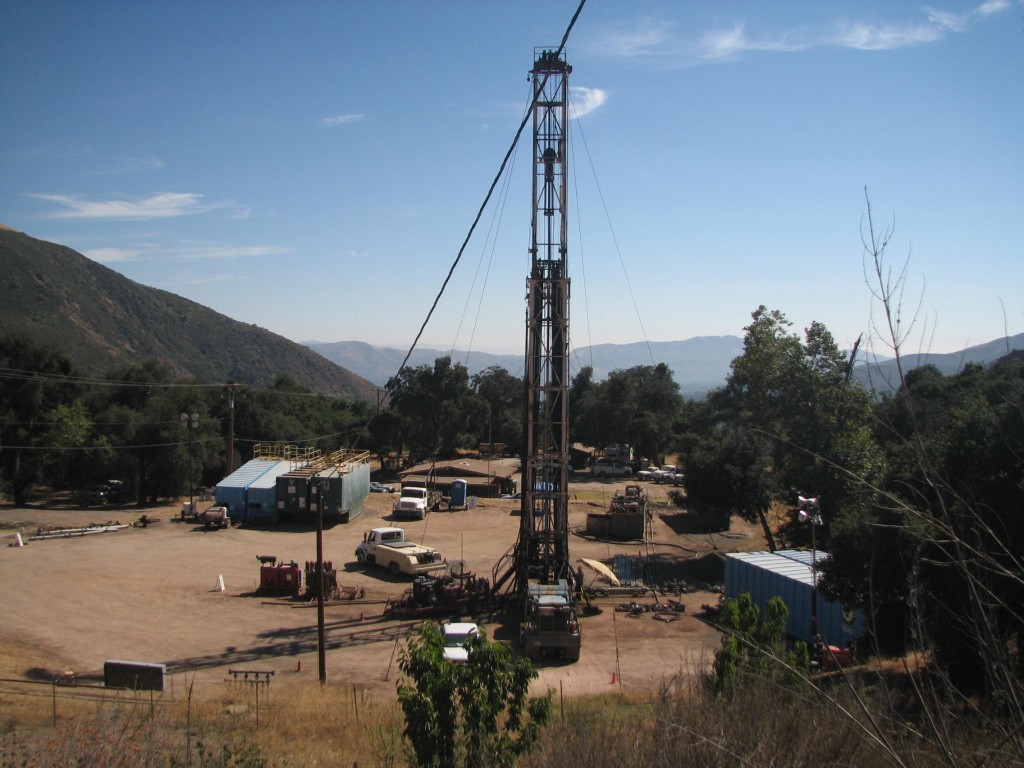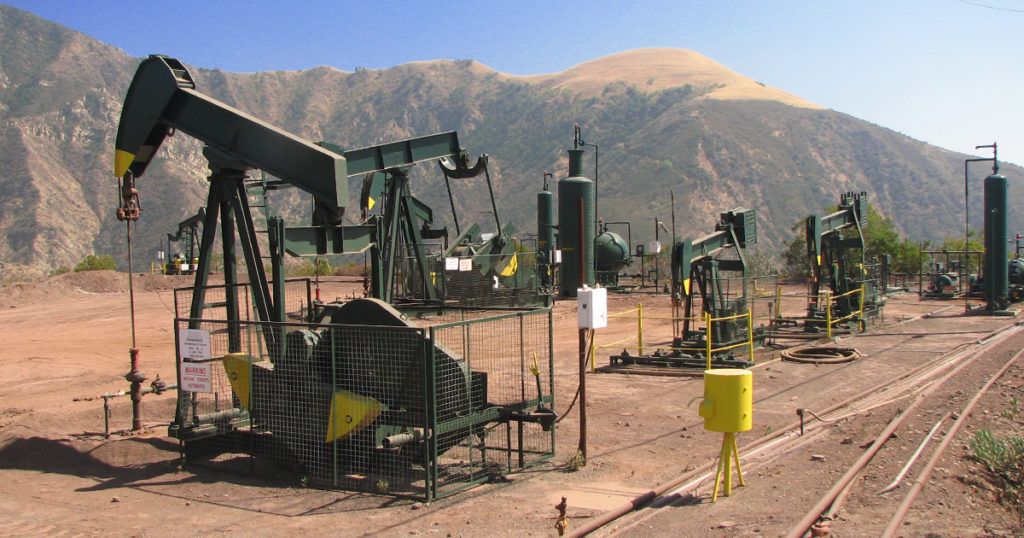
Ventura, CA — Today the Ventura County Board of Supervisors voted 3-2 to update the County’s Zoning Ordinances for oil and gas wells operating under antiquated Conditional Use Permits. Thousands of oil wells in Ventura County operate under “antiquated permits” that were issued up to 75 years ago—before environmental and human health impacts were known, and long before bedrock environmental laws existed. Many of these wells are located within or adjacent to the Los Padres National Forest. Others are dangerously close to drinking water supplies and communities like Ventura, Oxnard, and Fillmore.
Hundreds of community members and environmental and climate justice organizations sent letters and called in to speak at the hearing in support of updated oil permitting to better protect the health and safety of the community, the climate, and public lands.
“What the County essentially did was close a loophole that allowed some oil companies to skirt modern laws that protect public health, precious water supplies, our public lands, and the environment. Now all new oil development and operations will be subject to the same rules that other businesses in Ventura County must follow.”
Rebecca August, ForestWatch, Director of Advocacy
Last fall, the Ventura County Board of Supervisors directed County staff to update oil drilling ordinances so that new wells drilled or fracked under these antiquated permits would be subject to greater transparency and environmental review. Over the summer, the Planning Commission recommended rule changes that would immediately require all new and expanded oil extraction activities in Ventura County to be reviewed carefully for compliance with modern health, safety, and environmental standards.
“Antiquated permits never expire. They allow for indefinite expansion without regulation. So long as they were allowed, they made Ventura County’s modern oil and gas regulations essentially meaningless. Today, the Ventura County Board of Supervisors told oil operators that they have to play by the same rules as everyone else – by simply requiring that new drilling and expansion follow modern health and safety standards.”
Liz Beall, CFROG, Executive Director
Under current rules governing antiquated permits, an oil company only needs to submit a short application along with a $330 permit fee to receive a “zoning clearance” to drill or frack a well in Ventura County. A zoning clearance process is considered ministerial, in that if the applicant checks all the boxes and pays the fee, the county must approve it, no discretion is allowed. Other ministerial actions include marriage licenses and backyard gazebos.
Most antiquated permits have no limit on the number of wells that can be drilled, have no expiration date, and do not stipulate what extraction techniques can be used. Under antiquated permits, new wells are approved without public notice or hearing and have never undergone environmental review.
“The oil company that benefited most from these antiquated permits and the biggest driller in our county is AERA Energy. This is also one of the operators Ventura County should be worried most about when it comes to leaving a legacy of toxic oil wells that will need tax payers dollars to clean up. Aera Energy has only set aside $80.29 per oil well for clean up, the least amount of any oil company in California, when the average cost of clean up is $68,000 and may be much higher. We are glad AERA will no longer have the ability to drill as many wells as they want with no environmental review, when they are not even setting aside the responsible amount needed to clean up their current wells.”
Tomás Morales Rebecchi, Food and Water Watch Central Coast Organizing Manager
This update will subject all new oil development permitting to discretionary review and will only apply to new wells. A wide range of land uses in Ventura County are currently permitted through discretionary review, including wineries, day care centers, bed and breakfasts, schools, renewable energy production, film production, camps, and campgrounds. Discretionary review of these permit applications simply ensures that all current health, safety, and environmental requirements are met.

ForestWatch and our allies, CFROG and Food & Water Watch, have spearheaded this fight to close these loopholes for six years—attending numerous hearings, comment letters, additional information requests, and retaining an attorney. We were joined by a coalition of twenty environmental and labor groups including LULAC de Camarillo, Sierra Club, 350.org, Central Coast Alliance for a Sustainable Economy (CAUSE), and the Social Justice Fund for Ventura County.
“We applaud the board for protecting Ventura County from the harmful impacts that dangerously under-regulated oil development would have on public health, precious water resources, public lands, and the environment,” said August. “This victory was long in the making and wouldn’t have happened without the support of our allies and community.”
“One of the oldest wells in the United States was drilled in 1864. It is in Ojai, within a few feet of San Antonio Creek. The antiquated permits handed out to oil operators prior to 1960 are exactly that – antiquated. They were issued prior to our modern understanding of the hazards of petroleum production, and prior to the development of science-backed health and safety standards. They pre-date the existence of the Environmental Protection Agency. Today the Ventura County Board of Supervisors exercised common sense in asking oil operators to bring all new operations up to contemporary standards. It is a great day for the health, safety, and welfare of our communities.”
Liz Beall, CFROG, Executive Director
The board failed to achieve the 4-1 vote necessary to pass part of the measure that would have funded the establishment of one regular full-time position in the planning division to support the ordinance changes. The position would be paid for by fees at no cost to the county. Both Supervisors Long and Huber voted against the proposal. Without the additional staff member, applicant waiting times would likely increase as current staff juggles the additional workload. Consideration of the staffing issue will be taken up at the next meeting of the board as a stand-alone issue.
On a separate agenda item at today’s meeting, supervisors also voted to kickstart a process that would stenghten other oil and gas regulations. Among the changes the board wants to consider are limiting oil and gas permits to 15 years, addressing oil wells that are idle for 15 years or more, and increasing the amount of money oil companies set aside for clean up, compliance, and remediation. OIl spills can cost hundreds of thousands of dollars to clean up and cause millions in dammages to property and natural resources. Oil companies operating in Ventura can purchase “blanket bonds” that cover many wells for just $10,000. Modernizing bonding requirements will ensure that taxpayers aren’t left with the bill.







Comments are closed.